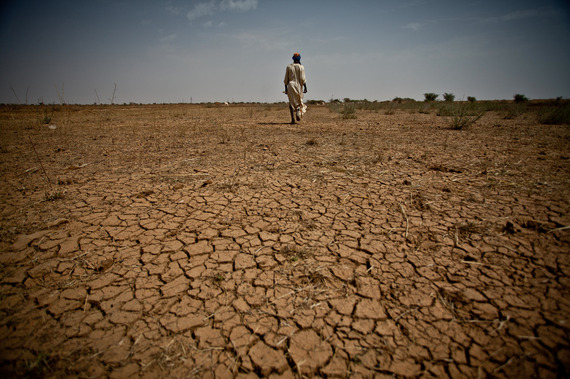 Photo Credit: Oxfam
Photo Credit: Oxfam
In 2001, the Marrakech Accords paved the way for the Clean Development Mechanism (CDM), which was designed to provide technological and financial support to help developing countries offset the impacts of climate change. Fifteen years later, Marrakech again sets the stage for Africa to advocate an ambitious climate plan by hosting the COP22, which is held from 7 - 18 November. The conference is expected to produce substantive decisions on implementing the milestone Paris Agreement.
Given its small responsibility in global warming, the issue of adaptation remains the continent's number-one priority. The effects of global warming are tangible and could have devastating consequences for Africa. In some countries, yields from rain-fed agriculture could be reduced by up to 50% by 2020. By 2020, some assessments project that 75-250 million people are estimated to be exposed to increased water stress. We have reached a point where postponing action could eradicate the economic advances made by a significant number of African countries. On the other hand, discussions with a focus on action could bring benefits on many levels: economic, financial, social and environmental.
Climate change is an opportunity to rethink development models, especially for Africa. This is something African leaders and economic stakeholders have keenly understood in their collective commitment to negotiations and actions to tackle global warming. Through the African Union (AU) and its various bodies, Africa has played a key part in talks on climate change, ensuring that the continent adopts a common stance in international negotiations.
Africa must continue to speak as one in any debate and action on climate change. Through the AU and the introduction of NEPAD, the development agency of the African Union, and Agenda 2063, its roadmap for structuring and sustaining the continent's economic take-off, African leaders have adopted an environment action plan to rise to environmental challenges on the continent. This plan aims to promote sustainable use of Africa's resources while strengthening public and political support for environmental initiatives and making environmental issues an integral part of poverty-reduction strategies. It also provides a means of pooling resources through programmes such as the "Great Green Wall", a scheme designed to counter desertification from Senegal to Ethiopia thanks to agro-forestry projects, to prevent desertification.
In 2014, NEPAD also successfully established a climate change fund with the support of the German government to offer technical and financial assistance to AU member states, Regional Economic Communities and institutions. In most parts of Africa, livelihoods largely depend on agriculture, which is particularly vulnerable to climate-related strain.
The commitment to raise $100 billion per year by 2020 is an opportunity to make Africa more resilient to the effects of climate change. African negotiators will need to encourage developed countries to increase their financial support for adaptation before 2020 and better meet the pressing needs of vulnerable African countries.
At the same time, the proliferation of funds to tackle climate change has raised questions over African countries' ability to gain access to finance. Funding to adapt agriculture to climate change may be one of the most important issues on the table in Marrakech. Africa needs direct access to all new funds with minimal management by intermediaries.
The COP now unfolding on African soil is a unique opportunity to highlight Africa's needs and build on our strengths. It is a chance to act now to shape models for our future growth. We must succeed if we are to fulfil our commitment to the people of Africa, who bear the brunt of the adverse consequences of climate change affecting our world today.
